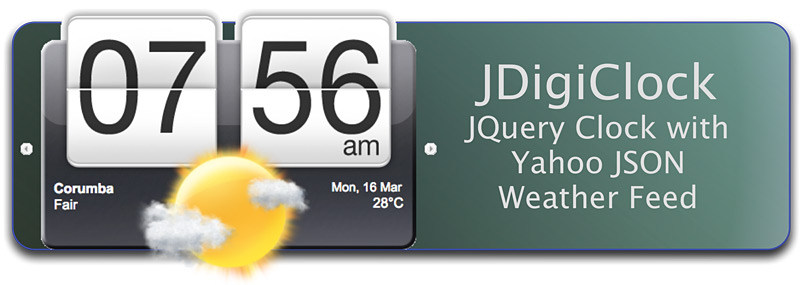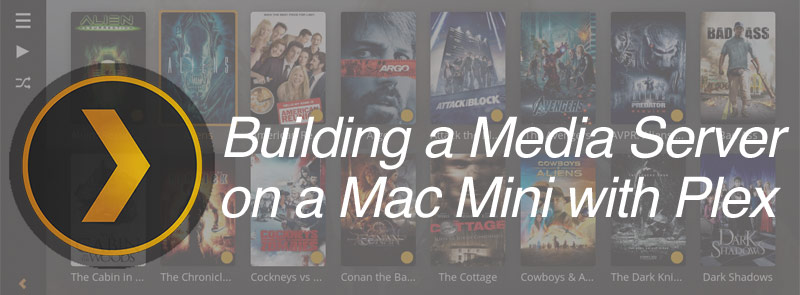
JDigiClock: JQuery Clock with Yahoo Weather Feed
15-March-2015
Some years ago, a nice jquery digital clock plug-in was doing the rounds, written by a guy called Radoslav Dimov and made available under free MIT and GPL licensing. JDigiClock was a fantastic add-in. Aside from showing time, it displayed current weather and forecast information - and is something I’ve been using for a couple of years (albeit with resizing and a minor modification for time zones) on my www.pantanalescapes.com website. Unfortunately, some months ago it stopped working. The problem was that the support for its weather feed from AccuWeather.com was discontinued. This post contains a short list of the modifications I’ve made to JDigiClock allowing it to use an alternative weather feed from Yahoo. The modified code is also available for download.

 Read More...
Read More...

Andrew Mercer
I'm a Business Intelligence and Data Warehousing consultant based in Brisbane, Australia. I've consulted on or managed several large BI systems in New Zealand, Australia and Latin America.

Contact Info
Please use the contact form on this site.
Or phone 04 5704 1640 (Australia)
Or phone 04 5704 1640 (Australia)
Navigation
Photos
Latest Articles
Comments

Enable Oracle OCI8 PHP Extension on Mac OS X
26-January-2015
The last major step for getting an Oracle development environment functioning on my Mac Mini was the setup of the OCI8 connector needed to enable PHP connectivity through to my Oracle database. There are other methods such as the Zen Framework where all that stuff comes built-in … but I don’t necessarily want to be tied to that ongoing. I thought that OCI8 was be just a simple install - but it turned out to be the trickiest part. Typically, after several attempted installs, trying different variations, the solution to get things working was very simple … but missing one documented step. As such, these notes cover the final install method I used. Mostly they’re intended to help me in the event I ever need to repeat the process with a brand new Mac - but hopefully they might also help others attempting the same process. Read More...

Oracle Instant Client and TNS on a Mac
24-January-2015
Oracle’s Instant Client is a valuable tool allowing anyone on a Mac to connect to Oracle databases, and is a prerequisite for installing SQL Developer, SQLPlus, or OCI8 (for PHP connectivity). However, Oracle’s documentation for installing Instant Client is very light. There are multiple ways to install it, and although most of them work, some are better than others if you want to avoid downstream issues. This article describes the method that I finally settled on after trying several other variations.
Downloading the install packages from the Oracle Instant Client download site is the first step. However, rather than a single install, you get a choice of library files and versions. Read More...
Downloading the install packages from the Oracle Instant Client download site is the first step. However, rather than a single install, you get a choice of library files and versions. Read More...

Configuring an Oracle VM on a Mac
05-December-2014
Last month, when I got the new Mac Mini, my key reason was to set it up as a small home-based server to support my Oracle development and education. Since my workplace isn’t great at staying up to date with the latest products, I wanted a sandpit to try things out for myself - even when they don’t relate to my current projects. The Mac Mini seemed like an ideal home server - as its small, discreet, and doesn’t draw much power. And, as per my previous post it doubles as my media server. Although Oracle don’t ship or support any native server-based or database products for the Mac, Oracle’s pre-built VirtualBox VMs are a great way to trial new products and configurations hosted within a Linux-based virtual machine. This means less time playing with configuration and upgrades (unless I want to). As newer products come out, I just download and substitute the latest VM, and if I mess things up then I can just revert back to the original VM. However, as with all things, the first time setup takes a little research and planning - as changes to some configuration settings, and other customisations, may be required depending on what you want the system to do. Read More...

Building a Media Server on a Mac Mini with Plex
20-November-2014
With the advent of the new 2014 Mac Mini, I took the plunge configuring one as a lounge-based server (I’d previously toyed with the idea of the brilliantly retro C64x, but my family would never have understood). There’s no need for a screen or keyboard with the Mac Mini since as I can connect to it remotely from my Macbook via OS X’s in-built screen sharing … although I admittedly needed to book time with the Genius bar of my local Apple Store so I could use one of their screens/keyboards for the initial setup.
My real intent was getting a small server to run apache along with various VM images to support my development projects. Usage as a media server was really just a happy bonus, and a more tangible reason for buying the server that I could explain to my wife. Read More...
My real intent was getting a small server to run apache along with various VM images to support my development projects. Usage as a media server was really just a happy bonus, and a more tangible reason for buying the server that I could explain to my wife. Read More...

Star Schema: The Complete Reference
21-November-2012
Back in 2008, I was lucky enough to attend a Dimensional Data Modeling course in Auckland run by Ralph Kimball and Margy Ross. My team and I were thrilled at the opportunity to meet two “rock stars” of the Data Warehousing world (yes, sad geeks that we were). Being taught dimensional modeling techniques by the man famous for kicking it all off was a great experience. Although Ralph didn’t claim to be the inventor of dimensional modeling or star schemas, his workshops offered through the Kimball Group, and books such as The Data Warehouse Toolkit were instrumental in getting the techniques widely known and deployed as the de facto standard for data warehousing. To those in our part of the world at least, Ralph Kimball was “Mr Data Warehousing”. Read More...

Change Management for Business Intelligence Projects: Part 2
01-November-2012
Leading the Case for Change
In part 1, last week, I described how a Change Management Framework can be used to consider and plan the activities for your proposed change. This week in part 2, I will describe more about what’s involved to help sell your change and actually get the organisational commitment to do it. Unfortunately, with so many competing demands, a good idea by itself often isn’t enough. You need to fight to get attention, and to get commitment from your management team that thdea is worthwhile pursuing. Read More...
In part 1, last week, I described how a Change Management Framework can be used to consider and plan the activities for your proposed change. This week in part 2, I will describe more about what’s involved to help sell your change and actually get the organisational commitment to do it. Unfortunately, with so many competing demands, a good idea by itself often isn’t enough. You need to fight to get attention, and to get commitment from your management team that thdea is worthwhile pursuing. Read More...

Change Management for Business Intelligence Projects: Part 1
25-October-2012
Change Management is a critical activity for any project. Note that we’re talking about Change Management from a project and business perspective – not the ITIL process). In this context, Change Management has the goal of re-inventing your organisation so that it transitions from one set of business processes or systems to a new (and hopefully improved) model. Although the transition may involve changing technologies, it’s really more about people and processes. Read More...

Business Intelligence: The Data Analysis Phase
03-October-2012
I think every IT Professional has a specialist subject which they feel most passionate about. Mine is data. If you’re building Business Intelligence or reporting systems, having good quality and well understood data is absolutely paramount. Unfortunately, I’ve lost count of the times when I’ve seen system developers jump straight for their tools - sometimes pushed by business managers and project managers who just want their systems delivered. They focus on building automated data feeds and reports, without truly understanding what the data is, and what it means to the business. This results in a lot of money being spent on something that doesn’t actually work - and which generates misleading reports that destroy everyone’s credibility.
Sometimes you need to go back to basics - and the most basic requirement for any Data Warehouse or BI system is data. Read More...
Sometimes you need to go back to basics - and the most basic requirement for any Data Warehouse or BI system is data. Read More...

Golden Rules of IT Customer Support
24-September-2012
No matter where we work, why is it that we always complain about our IT helpdesk, or the service we get from our IT software vendors? I’ve worked in the industry for two decades and it seems we’re never happy. I’ve also worked with the IT Services teams. From their point of view, they’re often frustrated by bitchy customers who don’t know what they want, and really have no basic clue about how systems work. Despite their patience and calm demeanor while on the phone, as soon as the call is over you’ll sometimes hear your friendly Customer Support Representative crying howls of anguish (or much worse). I’ve occasionally had to send a few outside for a few minutes just to calm down.
Okay - let’s face it, computers and IT systems are inherently frustrating things. When things go wrong they can go majorly wrong, without any clear or obvious reason. And, from a user’s point of view, it’s sometimes hard to figure out just what the system designer was thinking … or if maybe they were on some mind-altering substance. Read More...
Okay - let’s face it, computers and IT systems are inherently frustrating things. When things go wrong they can go majorly wrong, without any clear or obvious reason. And, from a user’s point of view, it’s sometimes hard to figure out just what the system designer was thinking … or if maybe they were on some mind-altering substance. Read More...
